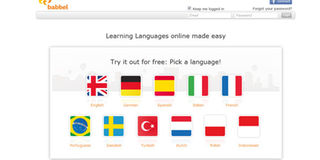Apps make learning new languages fun and easy

The app that I have found most powerful is Babbel available on Babbel.com. It’s a companion to the bigger Babbel online package and covers 11 languages.
What you need to know:
- In the job market for example, one of the growing careers is language translation. Due to growing economic relations between Kenya and various countries of the world, knowing a foreign language gives one the much-needed edge.
- But for some people, learning a new language may be boring and tedious, but for others a new language is their passion.
- It can also be very expensive and time consuming as you may have to enrol in a course. We all know that in this age of technology, big text books are not always fun; instead they can put you to sleep.
If your work involves regular contact with speakers of foreign languages, being able to talk to them in their own languages will help you to communicate with them.
It may also help you to make sales and to negotiate and secure contracts. In sum, it will help you to better interact with citizens of the world.
There has always been a growing importance for languages, whether native or foreign, especially in today’s era where communication has reached its peak and the world has become a smaller place.
Learning a foreign language gives students an opportunity to appear for international examinations like TOFEL, JLPT and DELE and so on.
In the job market for example, one of the growing careers is language translation. Due to growing economic relations between Kenya and various countries of the world, knowing a foreign language gives one the much-needed edge.
But for some people, learning a new language may be boring and tedious, but for others a new language is their passion.
It can also be very expensive and time consuming as you may have to enrol in a course. We all know that in this age of technology, big text books are not always fun; instead they can put you to sleep.
Technology however, has found a way of making a new language fun and easy to learn. Digital technology creates new learning opportunities and introduces new elements into the cognitive process of foreign language learning.
Rather than having to pore over a book and answer multiple-guess questions, you can find sophisticated apps to help. The app that I have found most powerful is Babbel available on Babbel.com. It’s a companion to the bigger Babbel online package and covers 11 languages.
The different language apps are all similar, and they’re free on iOS and Android. You can set up a free account to keep track of your learning, and this will let you try the full fee-carrying online programme. These study aids are also easy to take everywhere as we move across the globe.
If Babbel’s doesn’t appeal, then you may like apps from Busuu.org. It has a similar style of teaching words and phrases alongside an image and with recordings of native speakers, combined with games and exercises to really carve the language into your memory.
There’s even a bit of gamification as the apps award you “busuu-berries” if you complete an exercise. Learning a language sometimes seems as difficult as dieting. The solution is to figure out how to stay interested after the novelty wears off.
To counter boredom, online language programmes have introduced crossword puzzles, interactive videos and other games to reward users for making progress.
There are also many websites that provide you with the facility of learning a new language. Not only do you learn by reading but you can also learn by using interactive games and lessons each website provides. This way you can learn through phonics which improves your vocabulary and fluency when speaking.
How do you know your progress? Well, most websites will require you to sign up for free in order to keep a track of your progress. It will show you your strong and weak points and identify areas where you need to improve.
There are many websites that help one to learn new languages. For example, on BBC.com, users will find instruction for 40 languages, including French, Spanish, Greek, Chinese, German, Italian and Portuguese.
According to the BBC, the syllabus conforms to the first level of the Common European Framework of Reference for Languages.
Sam Wambugu is a monitoring and evaluation specialist. Email: samwambugugmail.com




